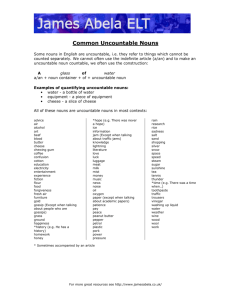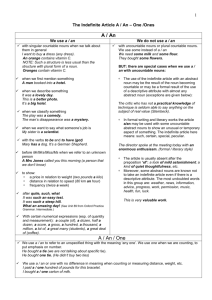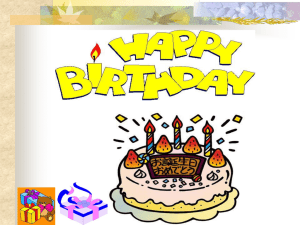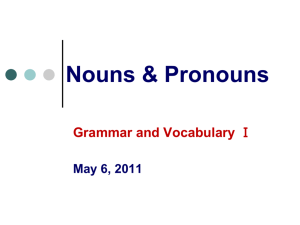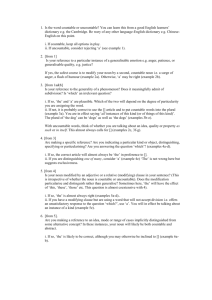Everday uses of computers
advertisement
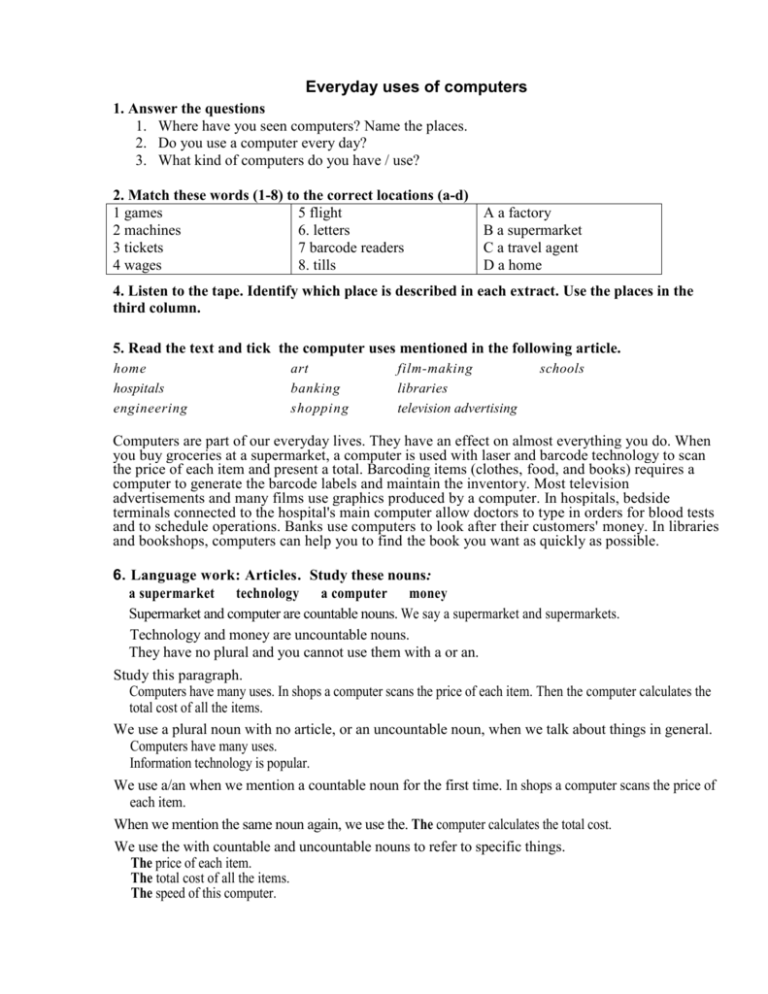
Everyday uses of computers 1. Answer the questions 1. Where have you seen computers? Name the places. 2. Do you use a computer every day? 3. What kind of computers do you have / use? 2. Match these words (1-8) to the correct locations (a-d) 1 games 5 flight 2 machines 6. letters 3 tickets 7 barcode readers 4 wages 8. tills A a factory B a supermarket C a travel agent D a home 4. Listen to the tape. Identify which place is described in each extract. Use the places in the third column. 5. Read the text and tick the computer uses mentioned in the following article. home hospitals engineering art banking shopping film-making libraries television advertising schools Computers are part of our everyday lives. They have an effect on almost everything you do. When you buy groceries at a supermarket, a computer is used with laser and barcode technology to scan the price of each item and present a total. Barcoding items (clothes, food, and books) requires a computer to generate the barcode labels and maintain the inventory. Most television advertisements and many films use graphics produced by a computer. In hospitals, bedside terminals connected to the hospital's main computer allow doctors to type in orders for blood tests and to schedule operations. Banks use computers to look after their customers' money. In libraries and bookshops, computers can help you to find the book you want as quickly as possible. 6. Language work: Articles. Study these nouns: a supermarket technology a computer money Supermarket and computer are countable nouns. We say a supermarket and supermarkets. Technology and money are uncountable nouns. They have no plural and you cannot use them with a or an. Study this paragraph. Computers have many uses. In shops a computer scans the price of each item. Then the computer calculates the total cost of all the items. We use a plural noun with no article, or an uncountable noun, when we talk about things in general. Computers have many uses. Information technology is popular. We use a/an when we mention a countable noun for the first time. In shops a computer scans the price of each item. When we mention the same noun again, we use the. The computer calculates the total cost. We use the with countable and uncountable nouns to refer to specific things. The price of each item. The total cost of all the items. The speed of this computer. 7. Translate the nouns into Estonian and divide the words into two groups: countable and uncountable. Online dictionaries: http://ee.www.ee/AKS/; http://www.vallaste.ee/; http://www.ibs.ee/dict/; http://foldoc.doc.ic.ac.uk/foldoc/index.html; http://www.onelook.com/; 1. capacity 2. data 3. device 4. disk 5. drive 6. memory 7. mouse 8. software 10. speed 8. Fill in the gaps in this paragraph with a/an or the where necessary. The Walsh family have …….computer at home. Their son uses ….computer to help with …. homework and to play …. computer games. Their student daughter uses …. computer for … projects and for…. email. All ….. family use it to get ….. information from …..Internet. ….. Computers serve many different purposes where they are used. ….. home user spends time on ….. computer checking e-mail, instant messaging, surfing …. Web, and playing….games. They also use …. computer for budgeting, research for educational purposed, home business management, and personal finance management. Almost every family member uses … computer, and they usually use it for different purposes. In many homes, ……. computer has become a necessity. 9. Aids to communication Here are some phrases to use when you do not understand what someone says to you. What does X mean? Could you say that again, please? I’m sorry, l didn't understand that. A little more slowly, please. Here are some phrases to use when you need help from your teacher. What 's the English for... ? How do you say . 10. Match the places in column A with the computer uses in column B. A banks factories homes hospitals shops B control machines calculate the bill look after patient records and medicines provide entertainment and information control our money 11. Now fill in the gaps in this paragraph about computer uses. Computers are now part of our everyday life. In shops, they l_____________________ In factories, they _____________________________________________________________________ .. In ., they look after patient records and medicines. When we have a bank account, a computer l- _____ _. In our homes, computers


